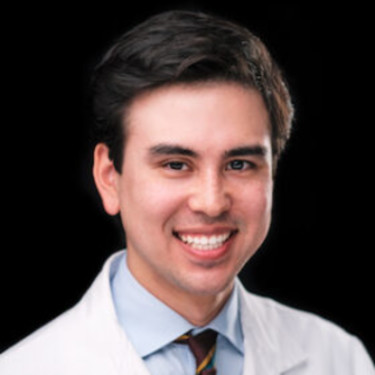Recently, an undergraduate student from our university shadowed our team in the OR. She is only between her first and second years of college but is interested in attending medical school and is sampling a variety of different specialties this summer. This is nothing out of the ordinary. We have students ask to shadow attendings all the time. Indeed, it’s something that most residents themselves have done at some point in their lives — I remember shadowing physicians in early college as I tried to determine if medicine was the path I wanted to pursue. And yet, something about this particular instance caused me to reminisce about my path from college to residency for the rest of the day.
I didn’t fully realize it when I set my sights on medicine at the end of my first year of college, but, on paper, becoming a physician seems somewhat crazy: four years of college, at least four years of medical school (for neurosurgery applicants, taking a year of research during med school is very common), three to seven years of residency, and potentially multiple years of fellowship. The payoff is finally becoming a junior attending somewhere in your late 20s to late 30s, where there is still much work to be done to establish a practice and learn how to function entirely on your own.
And it’s not just the length of the path; it’s the neurotic amount of planning that goes into each step. I remember reading in 2020 during the height of COVID about the “Fauci effect” — a rise in medical school applications attributed to the influence of Dr. Fauci and medical professionals during the pandemic. That potential explanation for such an increase never really made sense to me. Medical school isn’t something to which people randomly apply, not only because it shunts you into a long and arduous path, but also because doing so on a whim is impossible. There are prerequisite courses and labs, MCAT scores, and letters of recommendation that must be included in any application. Furthermore, as any successful medical school applicant can attest, there’s the “not-required-but-actually-required” components of your application: shadowing hours, community service, extracurricular activities that show your interest in the field, likely some component of research.
The truth is that, as for me, this path begins at the latest during early college for many people. We have to structure each year of our college experience around getting into medical school, which necessarily absorbs significant chunks of time both in and out of the classroom. From there, many people take gap years before medical school. Once accepted to medical school, you have to actually learn the impossible amount of information that it takes to be a well-balanced physician while also vying for your chosen residency spot. The residency application is even more involved and the programs have even higher expectations than do med school admissions committees. Then, everything you had experienced in school previously pales in comparison to the learning curve and long hours that you experience in residency.
Essentially, for a minimum of 11 years, you constantly have to push yourself, prove yourself, and cultivate an answer to “Why should we allow you to move on to the next step?” every few years. The standardized tests never end. The interviews never end. And you’re competing constantly, at least to some degree, against a cohort of peers who have self-selected as being particularly competitive about learning and school. The end product — becoming a physician with the knowledge and power to actually make all your own calls for the first time — is in many ways the definition of delayed gratification.
This begs the question: Is all this stress and sacrifice worth it in the end? The honest answer is, as with anything in life, it’s impossible to be 100% sure until you get there. Making it through medical training involves a healthy amount of faith that your gut instincts have not led you astray, and I’ve never been particularly good at taking things on faith alone. You’ll certainly meet people who view medicine as their calling in life, which is a viewpoint that I’ve never fully identified with. There’s a large amount of evidence supporting the idea that I have chosen correctly in life, yet I still have moments where my mind wavers.
This, I think, is due to the insidious creep of residency burnout or to the difficulty when focused on school and then clinical life of seeing the forest for the trees. Because these thoughts fade when I am on vacation or away from the hospital for a reasonable amount of time. Our tunnel vision in the hospital, and the stepwise nature of medical training, create a scenario where getting through the next day, the next rotation, or the next year is all we can think about. When we view our training as an amalgamation of little annoyances like this, it is easier to come to the conclusion that nobody normal would choose medicine. But, taking a step back and focusing on everything that we learn, come to appreciate, and cultivate in ourselves during training, it’s clearer to see that the end is worth it.
To be fair, we actually reaffirm this to ourselves at each juncture of our paths. For me, the information taught in medical school was fascinating and the doors it opened up were numerous. The anatomy and disease processes on which I work are rarely boring. Grateful patients make even the most painful cases worth it. And, to top it all off, spending time in the OR is among the best ways to occupy my day and serves as the engine powering all that I do in medicine. In sum, the proof has been accumulating around me all along; it’s just sometimes hard to appreciate it.
What do you do when you feel like medicine isn't worth it? Share your coping strategies — and alternate paths! — in the comments.
Dr. Alex Yahanda is a PGY3 neurosurgery resident at Washington University in St. Louis. He also received his MD and MPHS degrees from Washington University. Dr. Yahanda was a 2023–2024 Doximity Op-Med Fellow.
Image by Wan Wei / Shutterstock







